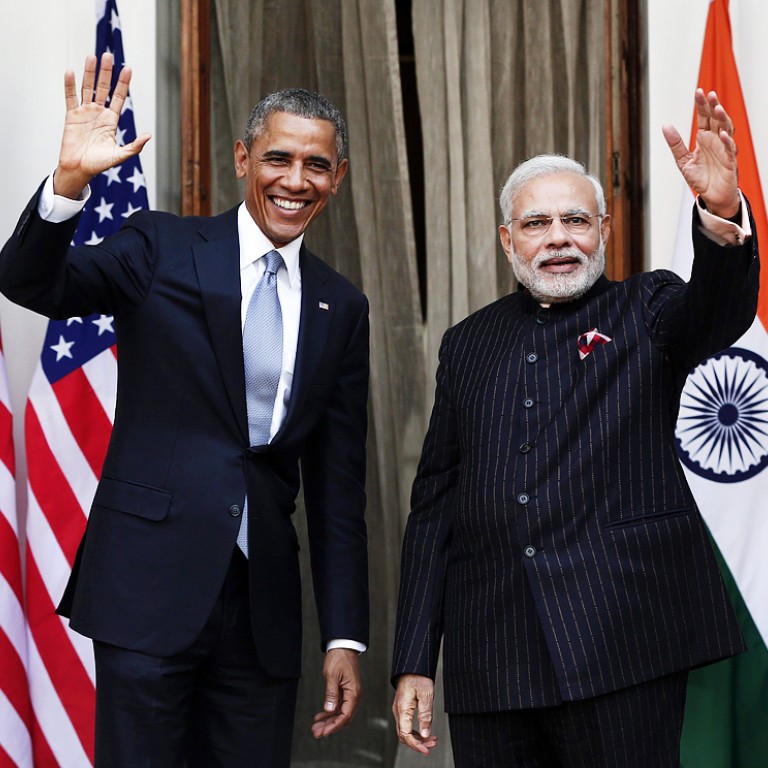
Obama and Modi share a man-hug to show China and the world their bond is strong
Obama, Modi embrace perhaps symbolises an enduring relationship they want to show world
At first glance, they might appear unlikely friends or allies. One is a right-wing nationalist and long-time international pariah, while the other is an unabashed liberal and Nobel peace laureate.
But as Barack Obama and Narendra Modi clasped each other in a bear hug yesterday, the US and Indian leaders highlighted a bond that is perhaps a mutual desire to show the world - and regional rival China - that they want to establish an enduring strategic partnership.

Modi made the decision himself to break with tradition, media reports said.

Aides say the two men bonded in Washington in September when Obama took Modi to the memorial of Martin Luther King Jnr, whose rights struggle was inspired by Mahatma Gandhi.

India has pushed back against China elsewhere in the region since Modi took office in May, improving ties with Japan and Vietnam, both locked in territorial disputes with Beijing.

The new robust diplomacy, which Modi calls "Act East", is being regarded warmly in Washington, which has been nudging India for years to dovetail with its strategic pivot towards the region.
Watch: Obama, Modi announce nuclear breakthrough after talks
Issues of importance at US-India summit
Strategic importance: India’s size, location, fast-growing economy and potential as a democratic counterbalance to China makes the South Asian nation an increasingly important element of US military and commercial strategy. India wants greater cooperation on terrorism and access to high-technology goods for civilian and military use.
Defence: The United States overtook Russia as the biggest weapons supplier to India, the Indian government said in August. India is the world’s biggest weapons importer. US officials confidently predict deals will be unveiled on the trip, including possibly joint production of Raven drones and systems for Lockheed’s C-130 transport planes.
Civil nuclear: US and Indian officials are unblocking billions of dollars of potential trade in nuclear energy.
Renewable energy: India wants US companies to help lead investments of US$100 billion in renewable energy. Modi promised to help renewable energy companies overcome entry to the Indian market during his trip to Washington last year.
Economic ties: Modi and Obama last year targeted a five-fold increase in annual trade to US$500 billion. But US business leaders have been frustrated by limits on their access to the Indian market and battles over intellectual property protection.
Reuters

